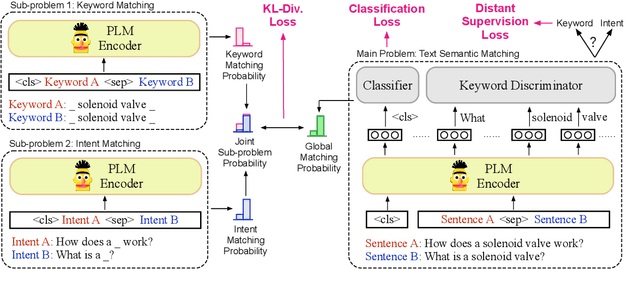Haixiang Li
Divide and Conquer: Text Semantic Matching with Disentangled Keywords and Intents
Mar 06, 2022



Abstract:Text semantic matching is a fundamental task that has been widely used in various scenarios, such as community question answering, information retrieval, and recommendation. Most state-of-the-art matching models, e.g., BERT, directly perform text comparison by processing each word uniformly. However, a query sentence generally comprises content that calls for different levels of matching granularity. Specifically, keywords represent factual information such as action, entity, and event that should be strictly matched, while intents convey abstract concepts and ideas that can be paraphrased into various expressions. In this work, we propose a simple yet effective training strategy for text semantic matching in a divide-and-conquer manner by disentangling keywords from intents. Our approach can be easily combined with pre-trained language models (PLM) without influencing their inference efficiency, achieving stable performance improvements against a wide range of PLMs on three benchmarks.
 Add to Chrome
Add to Chrome Add to Firefox
Add to Firefox Add to Edge
Add to Edge